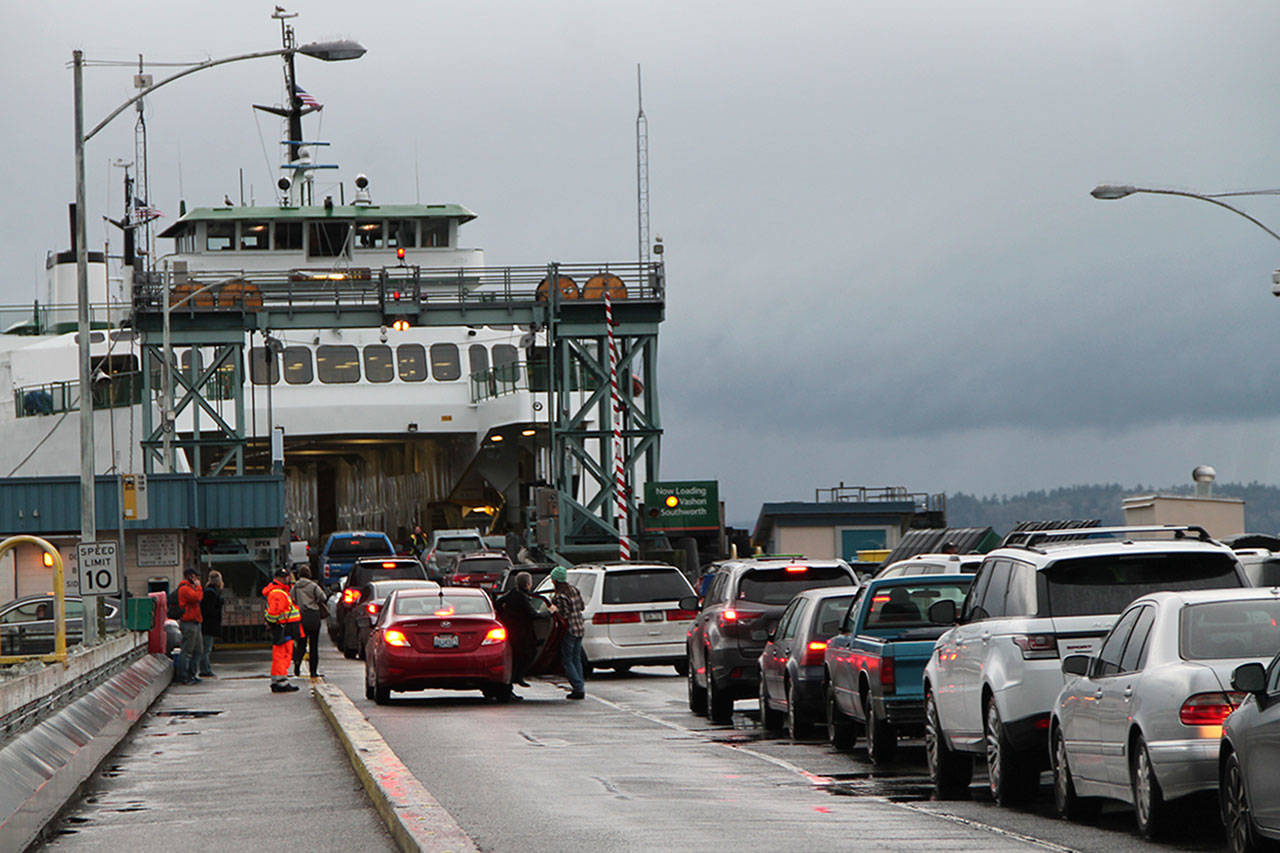Before the recent legislative session ended earlier this month in Olympia, law makers approved a supplemental transportation budget that allocated funds to improve service on the triangle route.
The $9 billion budget included $100,000 for two purposes islanders may appreciate: $75,000 will fund an independent study conducted by The Evans School of Public Policy and Governance at the University of Washington to improve loading procedures at Fauntleroy, and $25,000 will allow for increased traffic control at the Fauntleroy dock by extending the summer weekend hours of the police officer there.
Sen. Sharon Nelson, D-Maury Island, requested that the funds be in the budget. Regarding the Evans School study, Nelson said the collaboration came about when she met with the president of the university, who indicated that the problems at Fauntleroy would be a good project for the Evans School. Nelson noted the Evans School is well regarded and has transportation experience.
“I don’t know that they will find a solution, but it’s worth it,” she said. “I never think it hurts to have a third party look at a complex situation.”
At the Evans School, Director of External and Alumni Relations Kiana Scott said the team that will address the challenges at Fauntleroy will be faculty-led and include graduate students. The scope of the study has not yet been determined, but it is expected to begin later this spring and has funding for six months.
“We know that this is an important issue for everyone who is impacted, and we are excited to dive in,” Scott said.
The Evans School has worked on a variety of public policy-related projects in this region, Scott said, including an analysis of the effects of minimum wage ordinances and the public financing of two different proposals for Seattle sports arenas.
At Washington State Ferries (WSF), spokeswoman Hadley Rodero said that WSF will coordinate closely with the Evans School and share information from the study with the Triangle Route Improvement Task Force.
Regarding the extended hours for the police officer, Nelson said that on summer Saturdays, there is a mid-day gap of two to three hours when an officer is not present, and slower loading can result. The $25,000 will close that gap and fund an officer for most of the day on summer Sundays, a time when an officer was not present previously. The funding is meant to provide the extra coverage during the summer surge, but a start date has yet not been set.
“We are looking at when it can be implemented,” Nelson said.
In other ferry-related news, this week will conclude a two-week study of opening up a pre-ticketed lane for ferry travelers at Fauntleroy. Rodero said it was too early to comment on any trial results so far, as ferry officials will evaluate the entire two-week trial period, but she did not predict big news to come regarding the trial.
“It is a very, very minor adjustment,” she said. “I do not think customers will see a big change.”
Results will be shared at the next meeting of the Triangle Route Improvement Task Force, scheduled for 4:30 to 7 p.m. Thursday, March 29, at The Fauntleroy Church in West Seattle.
Looking further ahead, Rodero noted that WSF will hold nine community meetings this spring regarding its long-range plan, which will guide Ferries’ work until 2040. A 30 percent increase in ridership is expected between now and then. On Vashon, the meeting is scheduled for 6 to 8 p.m. Tuesday, April 24, at the Vashon High School. For those who cannot attend, WSF will offer an online open house accessible between April 10 and May 24.



